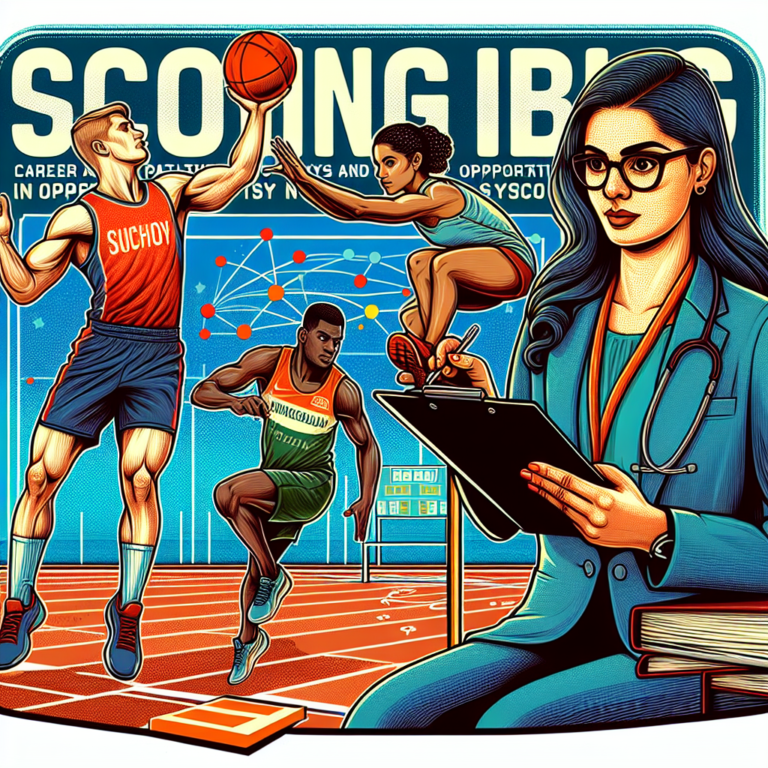
Introduction
Have you ever felt that the traditional counseling session—sitting on a couch and pouring out your heart—might not be enough? You’re not alone. As society evolves, so do our approaches to mental health and therapy. The field of clinical psychology is undergoing a significant transformation, with innovative methods that extend beyond the conventional. "Beyond the Couch: Innovative Approaches in Clinical Psychology" isn’t just a catchphrase; it’s a pivotal shift towards more effective, relatable, and diverse means of healing and support. This article will explore these avant-garde strategies that challenge the status quo and open new avenues for emotional well-being.
The Landscape of Modern Clinical Psychology
As we navigate the 21st century, mental health issues are more prevalent than ever. Traditional therapy methods, while foundational, have limitations that leave many individuals seeking alternative solutions. This evolving landscape has given rise to various innovative approaches in clinical psychology, leading to breakthroughs that go beyond conventional methods.
1. Teletherapy: Bridging Gaps in Access
Teletherapy is one of the most visible innovations in clinical psychology, especially post-pandemic. It allows therapists to connect with clients in the comfort of their homes, reducing barriers related to travel, scheduling, and even stigma.
- Case Study: Susan’s Journey
- Background: Susan, a working mother juggling multiple responsibilities, felt overwhelmed and isolated.
- Application: By opting for teletherapy, she accessed quality mental health care on her schedule.
- Analysis: This case highlights how teletherapy can cater to individuals with limited accessibility, providing timely interventions and consistent support.
2. Mindfulness and Acceptance-Based Therapies
Mindfulness and Acceptance and Commitment Therapy (ACT) focus on living in the present moment and accepting thoughts and emotions without judgment. These practices empower clients to enhance emotional regulation and resilience.
- Case Study: Jake’s Transformation
- Background: Jake struggled with anxiety and overthinking.
- Application: By integrating mindfulness into his therapy, he learned to observe his anxious thoughts without getting caught up in them.
- Analysis: Jake’s story illustrates how mindfulness can significantly improve emotional management, transforming destructive thought patterns into manageable experiences.
| Technique | Benefits | Target Issues |
|---|---|---|
| Teletherapy | Increased access, comfort | Anxiety, Depression |
| Mindfulness | Emotional regulation, stress reduction | Anxiety, PTSD |
| Art Therapy | Self-expression, healing | Trauma, Grief |
| Virtual Reality Therapy | Immersive experiences to face fears | Phobias, PTSD |
3. Art and Expressive Therapies
Art therapy and other expressive therapies leverage creativity to tap into emotions that verbal communication might overlook. These methods are invaluable for individuals who find it difficult to articulate their struggles verbally.
- Case Study: Emily’s Healing Through Art
- Background: Emily faced challenges articulating her feelings after a traumatic event.
- Application: Through art therapy, she created pieces that expressed her grief and pain.
- Analysis: Emily’s case points to the efficacy of expressive therapies in providing alternative outlets for healing and understanding.
4. Integrative Approaches: Combining Modalities
Integrative approaches combine multiple therapeutic modalities for a more tailored treatment plan. This could involve the use of cognitive behavioral therapy (CBT) alongside mindfulness practices or medication management with psychotherapy.
- Case Study: Mark’s Comprehensive Care
- Background: Mark had long battled depression and felt stagnant in traditional therapy.
- Application: His therapist designed a comprehensive plan using CBT and mindfulness techniques alongside medication.
- Analysis: Mark’s improvement underscores how combining different approaches can lead to holistic healing.
5. Peer Support and Community-Based Interventions
Peer support groups have emerged as effective complementary resources in mental health care. These initiatives allow individuals to share experiences and coping strategies in a non-judgmental setting, fostering community and understanding.
- Case Study: The Power of Peers
- Background: Linda, managing chronic PTSD, felt isolated and misunderstood.
- Application: She joined a peer support group, which provided her with validation and practical strategies from others facing similar challenges.
- Analysis: Linda’s experience highlights the potential of community as a source of support, reinforcing the idea that healing doesn’t solely occur in the therapist’s office.
Envisioning the Future of Clinical Psychology
With the rise of technology and societal shifts, the field of clinical psychology is moving forward rapidly. As we consider "Beyond the Couch: Innovative Approaches in Clinical Psychology," several trends and technologies stand out:
6. Digital Therapeutics and Apps
Mobile applications designed for mental health management are gaining traction. These tools offer everything from guided meditation to mood tracking, enabling users to take charge of their mental wellness in real-time.
- Case Study: Sarah Uses Apps for Management
- Background: Sarah sought support for her anxiety but felt apprehensive about traditional therapy.
- Application: She turned to mental health apps that provided techniques to manage her symptoms.
- Analysis: This story exemplifies how technology can empower individuals to take proactive steps toward their mental health.
7. Virtual Reality and Exposure Therapy
The use of virtual reality (VR) in therapy is revolutionizing the way therapists address fears and phobias. By immersing clients in controlled environments, they can confront their anxieties safely.
- Case Study: Alex’s VR Journey
- Background: Alex had a crippling fear of heights.
- Application: Through VR exposure therapy, he gradually faced his fears in a virtual setting.
- Analysis: Alex’s progress demonstrates the potential for VR to break down psychological barriers and foster real-world applications of exposure techniques.
8. Holistic and Alternative Therapies
More clinicians are incorporating holistic approaches that consider not just the mind, but also the body and spirit. This includes practices like yoga, herbal medicine, and nutritional guidance.
- Case Study: Therapeutic Yoga for Mental Wellness
- Background: Megan experienced anxiety and chronic tension.
- Application: She participated in a program that combined therapeutic yoga with traditional therapy.
- Analysis: This holistic method effectively reduced her anxiety levels and physical tension, presenting a compelling argument for the integration of alternative therapies in clinical practice.
Conclusion
"Beyond the Couch: Innovative Approaches in Clinical Psychology" underscores the vital evolution of mental health care. As we have explored, these innovative approaches are not just theoretical; they are transforming lives. Each method, from teletherapy to holistic strategies, offers pathways for individuals to pursue their mental wellness uniquely and effectively. The future of clinical psychology is promising, with a multitude of tools available for personalization and empowerment.
Inspire yourself or someone you know to embrace these innovative approaches. Mental health should never feel confined; together, let’s ensure it transcends the limitations of the couch.
FAQs
1. What are some innovative approaches in clinical psychology?
Innovative approaches include teletherapy, mindfulness-based therapies, art therapy, and VR therapy, among others.
2. How effective is teletherapy compared to traditional therapy?
Research shows that teletherapy can be just as effective as in-person sessions, especially in terms of accessibility and convenience.
3. Can children benefit from innovative therapeutic methods?
Yes, many innovative approaches, such as art therapy and play therapy, are particularly effective for children.
4. What role does community play in mental health recovery?
Community support, such as peer groups, can significantly enhance recovery by providing shared experiences and emotional validation.
5. Are digital mental health apps effective?
While the effectiveness can vary, many apps have shown promising results in helping users manage symptoms and improve mental health.
By embracing the notion of "Beyond the Couch: Innovative Approaches in Clinical Psychology," we can foster a more inclusive, accessible, and effective therapeutic landscape for all.


















I conceive this site contains some very good information for everyone : D.
Good write-up, I am regular visitor of one’s website, maintain up the nice operate, and It’s going to be a regular visitor for a long time.
Very interesting info !Perfect just what I was looking for!
As a Newbie, I am always searching online for articles that can benefit me. Thank you
You made some nice points there. I did a search on the subject and found most persons will go along with with your site.
Great site. Lots of helpful info here. I’m sending it to some pals ans additionally sharing in delicious. And obviously, thanks in your sweat!
I truly appreciate this post. I’ve been looking everywhere for this! Thank goodness I found it on Bing. You have made my day! Thx again!
I am really impressed along with your writing skills and also with the format in your weblog. Is this a paid subject or did you modify it your self? Anyway keep up the excellent high quality writing, it is uncommon to peer a nice blog like this one these days..
Pretty nice post. I just stumbled upon your weblog and wished to say that I have really enjoyed surfing around your blog posts. After all I will be subscribing to your feed and I hope you write again very soon!
I’ve been absent for a while, but now I remember why I used to love this blog. Thanks, I will try and check back more often. How frequently you update your website?
Thanks for another informative web site. Where else could I get that type of info written in such an ideal way? I’ve a project that I’m just now working on, and I have been on the look out for such information.
I wish to express appreciation to this writer for rescuing me from this particular challenge. As a result of looking out through the the web and obtaining thoughts which were not productive, I believed my entire life was done. Being alive without the strategies to the issues you’ve solved by means of the article is a serious case, as well as those that could have adversely damaged my entire career if I had not encountered your website. Your capability and kindness in dealing with all things was important. I don’t know what I would’ve done if I had not encountered such a thing like this. It’s possible to now look forward to my future. Thanks very much for your skilled and results-oriented help. I won’t be reluctant to recommend your blog to any individual who should get guide on this problem.
It?¦s actually a nice and helpful piece of info. I?¦m happy that you just shared this useful info with us. Please keep us informed like this. Thanks for sharing.
Merely wanna say that this is handy, Thanks for taking your time to write this.
I genuinely prize your piece of work, Great post.
Some times its a pain in the ass to read what blog owners wrote but this web site is real user pleasant! .
Great – I should definitely pronounce, impressed with your site. I had no trouble navigating through all the tabs as well as related information ended up being truly easy to do to access. I recently found what I hoped for before you know it in the least. Quite unusual. Is likely to appreciate it for those who add forums or anything, site theme . a tones way for your customer to communicate. Nice task..
Simply wanna comment that you have a very nice web site, I enjoy the design and style it actually stands out.
It’s a pity you don’t have a donate button! I’d without a doubt donate to this brilliant blog! I suppose for now i’ll settle for bookmarking and adding your RSS feed to my Google account. I look forward to new updates and will share this blog with my Facebook group. Chat soon!
I would like to thnkx for the efforts you have put in writing this blog. I am hoping the same high-grade blog post from you in the upcoming as well. In fact your creative writing abilities has inspired me to get my own blog now. Really the blogging is spreading its wings quickly. Your write up is a good example of it.
Hiya, I am really glad I have found this information. Today bloggers publish just about gossips and net and this is actually frustrating. A good website with exciting content, this is what I need. Thank you for keeping this web-site, I’ll be visiting it. Do you do newsletters? Can not find it.
Valuable information. Lucky me I found your web site by accident, and I am shocked why this accident didn’t happened earlier! I bookmarked it.
Hello! I could have sworn I’ve been to this blog before but after browsing through some of the post I realized it’s new to me. Anyways, I’m definitely happy I found it and I’ll be book-marking and checking back frequently!
I?¦m now not certain the place you’re getting your information, however great topic. I needs to spend a while studying more or working out more. Thank you for wonderful info I was in search of this information for my mission.
I would like to thnkx for the efforts you have put in writing this blog. I am hoping the same high-grade blog post from you in the upcoming as well. In fact your creative writing abilities has inspired me to get my own blog now. Really the blogging is spreading its wings quickly. Your write up is a good example of it.
Woah! I’m really digging the template/theme of this website. It’s simple, yet effective. A lot of times it’s hard to get that “perfect balance” between superb usability and appearance. I must say that you’ve done a very good job with this. Also, the blog loads very quick for me on Internet explorer. Exceptional Blog!
Absolutely indited subject matter, thanks for entropy.
Hey! I know this is somewhat off topic but I was wondering if you knew where I could find a captcha plugin for my comment form? I’m using the same blog platform as yours and I’m having difficulty finding one? Thanks a lot!
Hmm it appears like your blog ate my first comment (it was super long) so I guess I’ll just sum it up what I had written and say, I’m thoroughly enjoying your blog. I too am an aspiring blog writer but I’m still new to the whole thing. Do you have any recommendations for newbie blog writers? I’d genuinely appreciate it.
I like forgathering useful info, this post has got me even more info! .
Thanks for the auspicious writeup. It actually was once a enjoyment account it. Look complex to more brought agreeable from you! However, how can we communicate?
Nice read, I just passed this onto a colleague who was doing some research on that. And he actually bought me lunch since I found it for him smile Therefore let me rephrase that: Thank you for lunch! “There are places and moments in which one is so completely alone that one sees the world entire.” by Jules Renard.
Usually I do not read article on blogs, but I wish to say that this write-up very forced me to try and do it! Your writing style has been amazed me. Thanks, very nice post.
I don’t even know how I ended up here, but I thought this post was great. I do not know who you are but certainly you’re going to a famous blogger if you are not already 😉 Cheers!
I intended to compose you a little word to be able to thank you very much the moment again on the pleasant concepts you’ve contributed on this page. It has been simply generous with people like you to offer extensively exactly what some people might have sold as an e-book to generate some dough on their own, even more so now that you might have tried it if you desired. These tactics additionally acted to be the good way to fully grasp that most people have the same dreams just as my own to know the truth a great deal more in respect of this matter. I’m certain there are thousands of more pleasurable sessions up front for individuals that find out your blog post.
hello there and thank you in your info – I’ve definitely picked up anything new from right here. I did however expertise some technical issues using this web site, as I experienced to reload the web site a lot of times prior to I may get it to load correctly. I had been wondering in case your web hosting is OK? No longer that I’m complaining, but sluggish loading circumstances occasions will often impact your placement in google and can injury your quality rating if ads and ***********|advertising|advertising|advertising and *********** with Adwords. Anyway I am adding this RSS to my e-mail and can look out for much extra of your respective fascinating content. Ensure that you replace this once more soon..
Very nice post and right to the point. I am not sure if this is in fact the best place to ask but do you people have any thoughts on where to employ some professional writers? Thx 🙂
I conceive this site holds some very great information for everyone :D. “America is not merely a nation but a nation of nations.” by Lyndon B. Johnson.
Hi, I think your site might be having browser compatibility issues. When I look at your website in Safari, it looks fine but when opening in Internet Explorer, it has some overlapping. I just wanted to give you a quick heads up! Other then that, fantastic blog!
There is apparently a bunch to realize about this. I assume you made various good points in features also.
Great wordpress blog here.. It’s hard to find quality writing like yours these days. I really appreciate people like you! take care
Keep functioning ,splendid job!
Great line up. We will be linking to this great article on our site. Keep up the good writing.
Hello.This article was extremely remarkable, particularly since I was investigating for thoughts on this subject last Monday.
I’ve been absent for some time, but now I remember why I used to love this site. Thanks, I will try and check back more often. How frequently you update your website?
I am curious to find out what blog system you’re using? I’m having some minor security problems with my latest blog and I’d like to find something more safeguarded. Do you have any suggestions?
There’s noticeably a bundle to know about this. I assume you made certain nice factors in features also.
I like this post, enjoyed this one thanks for posting. “The world is round and the place which may seem like the end may also be only the beginning.” by George Baker.